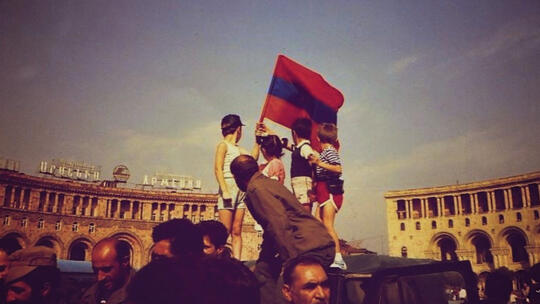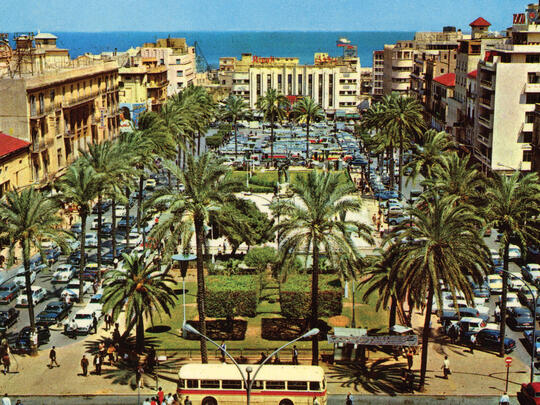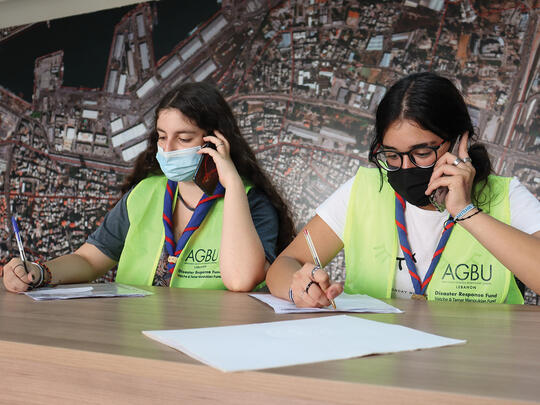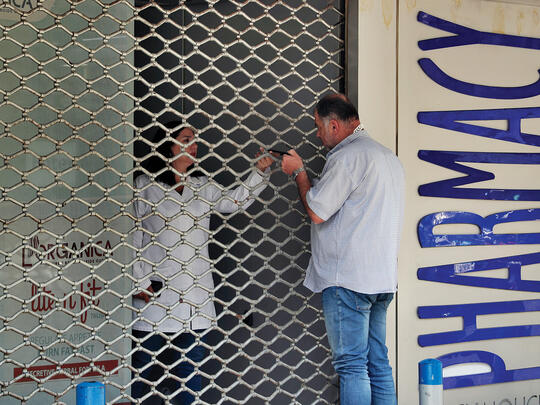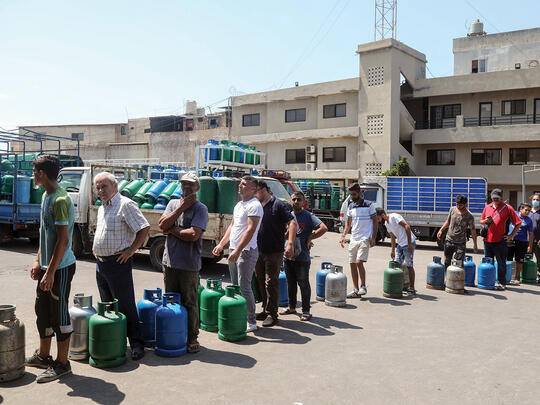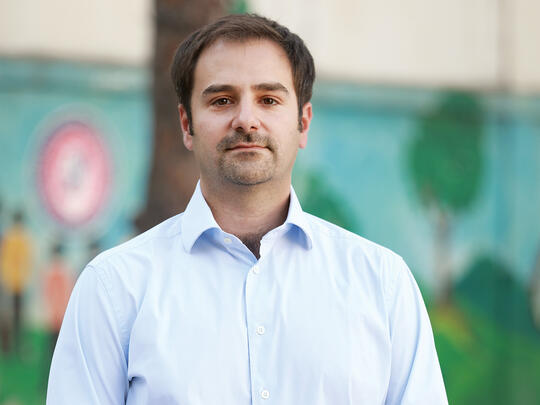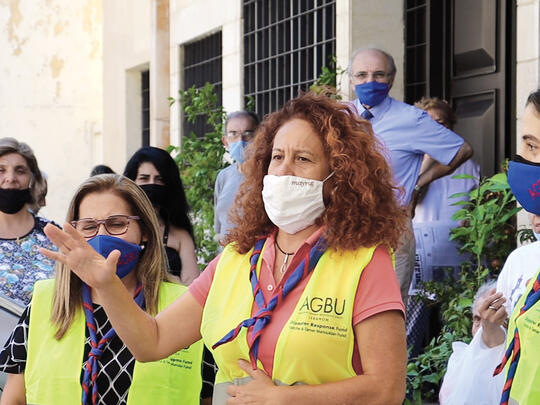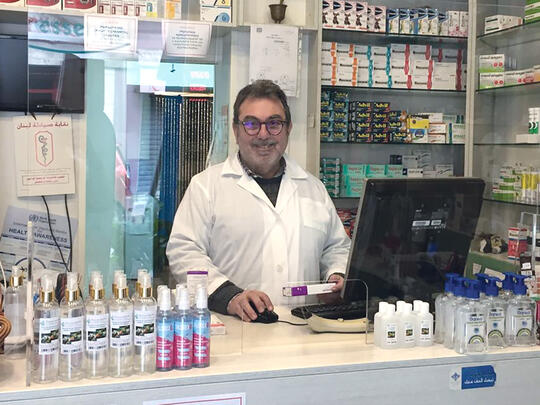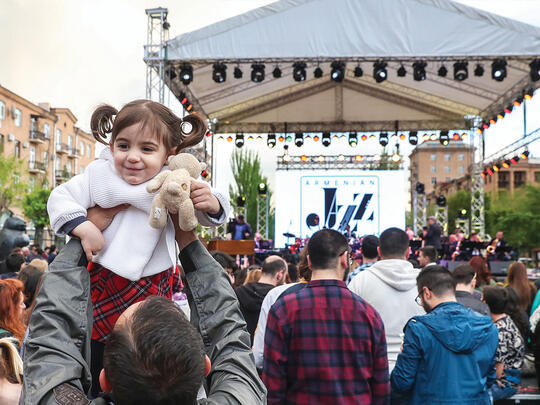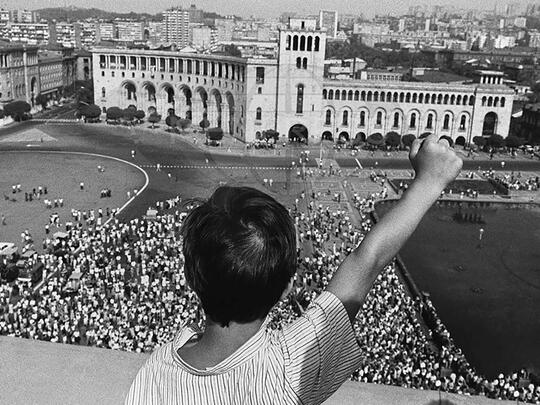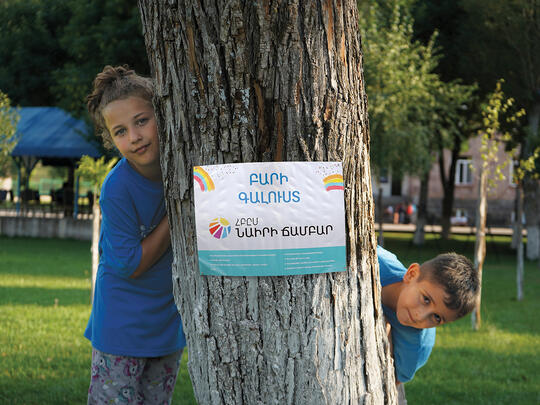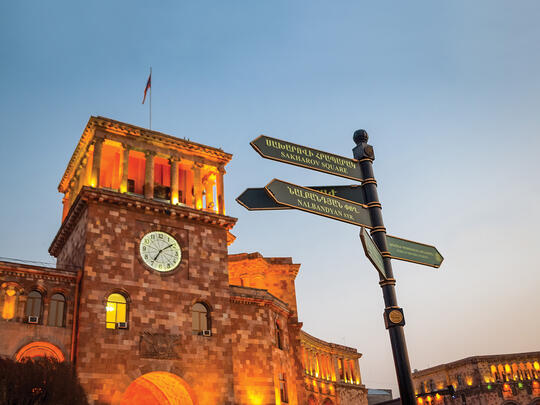ARMENIA
Tigran Mansuryan
Composer
On the eve of Armenia’s budding independence, Tigran Mansuryan, who was 52 at the time and already ranked among the greats of his time, was working as a freelance composer in Armenia. Two years later, he would assume the position of rector of Armenia’s only conservatory named after the revered Komitas.
“Even in Soviet times, I was what you would call a one-legged dissident, meaning I never believed in the common ideology without necessarily being in open rebellion against it. Still, I was branded a nevyyezdnoy so that I couldn’t leave the country without the explicit consent of the state. To see that system crumble under its own weight and our independence emerge from under its ruins was a source of great joy. So much so that we failed to anticipate the difficulties that lay ahead. Still, for me and many like me, for whom success at the cost of submission to the Soviet system amounted to failure, independence meant we could finally abandon that ideology of defeat and live in the hope of tomorrow. It really ushered in a new age of appreciation for the human being.”
To see that system crumble under its own weight and our independence emerge from under its ruins was a source of great joy.

Sona Hovhannisyan
Musicologist and Choral Conductor
In 1991, Sona Hovhannisyan, 28, had only recently become a mother and was teaching choral studies and conducting at the Romanos Melikyan College of Music in Yerevan. A year later and, despite the economic decay and social hardship hitting Armenia during
that time, she established the Hover Chamber Choir that continues to perform on world stages to this day. In the wake of the Velvet Revolution of 2018, she became the first female rector of the Komitas Conservatory of Armenia.
“It was an exceptional time to be alive. It was a time of national awakening and restored self-awareness. It was a time of widespread joy and excitement. I still remember my mom’s tear-soaked eyes. For me personally, independence was the logical sequel to my sit-down strikes as a conservatory student in support of the Karabakh Movement. But these were also cruel times. Times of deprivation and broken expectations. Independence is a dangerous concept for a small country like Armenia that had to and still must contend with major threats to its national security. A danger many of us were well aware of, even if only subconsciously. But that didn’t matter to us then. What mattered were the values and opportunities for which we had longed for so long that had finally been made available to us. The opportunity to open up to the world and learn about and even import current trends, including musical ones.”
Boris Gasparyan
Archaeolgist and Ethnographer
In the fall of 1991, Boris Gasparyan was a 26-year-old researcher at the Institute of Archaeology and Ethnography of the Armenian Academy of Sciences looking to make a name for himself in the field of archaeology. He has since risen the ranks to head the Stone Age research group at the same institute and is responsible for some of the greatest finds in Armenia’s recent history, including the world’s oldest shoe in the Areni-1 cave in the country’s southern Vayots Dzor Province.
We understood that independence was something to be conquered as something our ancestors had dreamed of for centuries.
“There was a certain duality in the years of independence. On the one hand, the economic decay and the war in Artsakh hinted that we were staring down the barrel of tough times. It was the worst time to be a scientist. In the absence of government funding, we were much more focused on surviving and supporting the war effort than engaging in active scientific pursuit. On the other hand, the difficulties we faced weren’t at the forefront of our thoughts. Instead, it was a time of conscious survival. We understood that independence was something to be conquered as something our ancestors had dreamed of for centuries. Back then, we lived under the impression that since we’re independent, we alone are in a position to resolve our problems and no one could dictate terms to us. But because we hadn’t been in that position for so long, we failed to appreciate that the presence of the Armenian flag on the grounds of the United Nations did not preclude third parties from intervening in our domestic affairs. Still, you felt proud to be alive during such historic times.”
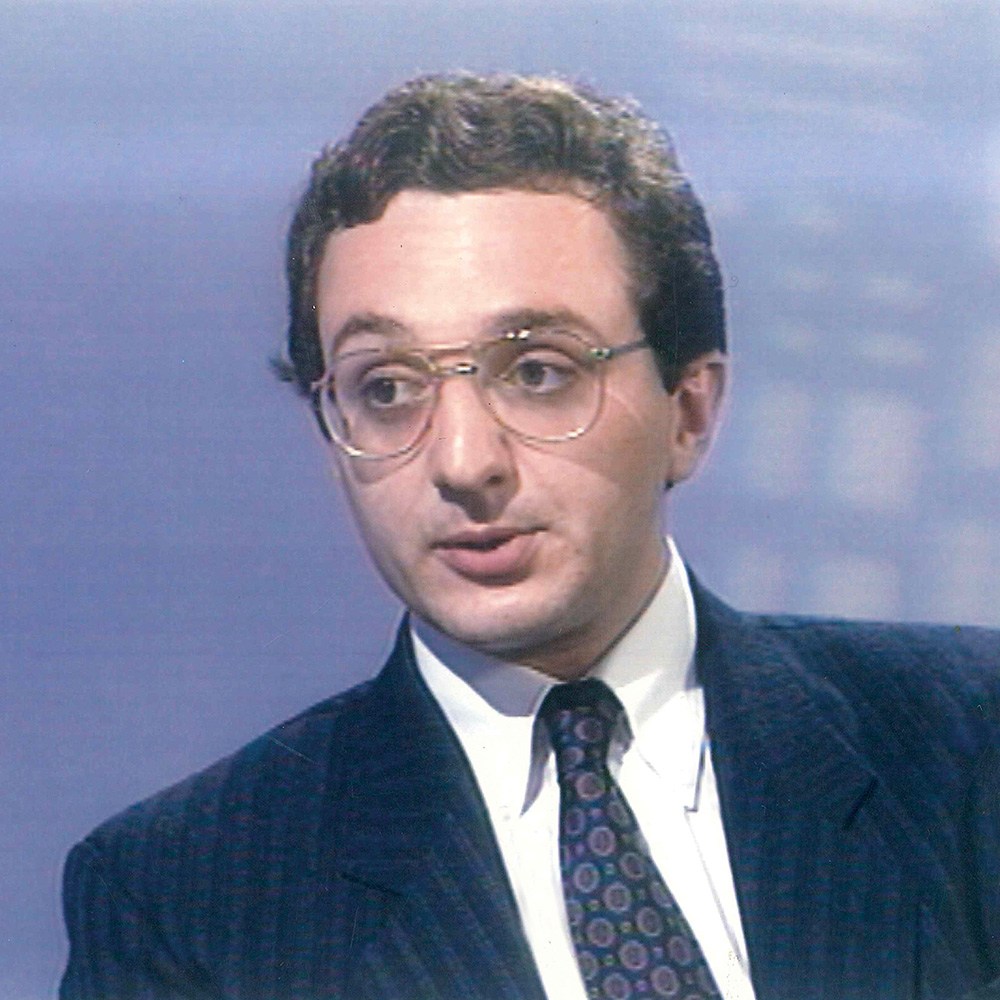
Zohrab Mnatsakanyan
Diplomat
As Armenia was preparing to turn the page on its Soviet legacy, Zohrab Mnatsakanyan, then 25 years old, was a graduate student in Western European politics at Victoria University of Manchester in the U.K. He returned to his native land, one week after the signing of the declaration of independence in September 1991, to head the European Department of the newly-formed ROA Ministry of Foreign Affairs. The appointment kickstarted a 30-year career in diplomacy that spanned Europe and the U.S. and culminated in his nomination as foreign minister of post-Velvet Revolution Armenia.
“Prior to its collapse, the Soviet Union was experiencing developments of a most concerning nature that challenged Armenia’s hopes and aspirations for an independent future as inspired by the Karabakh Movement. A group of communist hard-liners bent against then-General Secretary Gorbachev’s reforms had launched a coup to quell the independence movements taking shape in the Union. The favorable outcome of that crisis in favor of decentralization reinvigorated the confidence and optimism for the future among my generation. It was a most exhilarating time. Subsequent to the declaration, Armenia entered a phase of enormous pressure on account of the conflict in Artsakh and the disruption of the economy. Still, the confidence to forge our own future and experience the value of freedom and independence were overwhelming. You could breathe them in the air. The Foreign Ministry was then composed of a small team with little institutional experience and history, but great dedication to addressing both the immediate and long-term problems of the state. Together with the Ministry of Defense, it soon became one of the principal markers of independence. It was an incredible experience.”
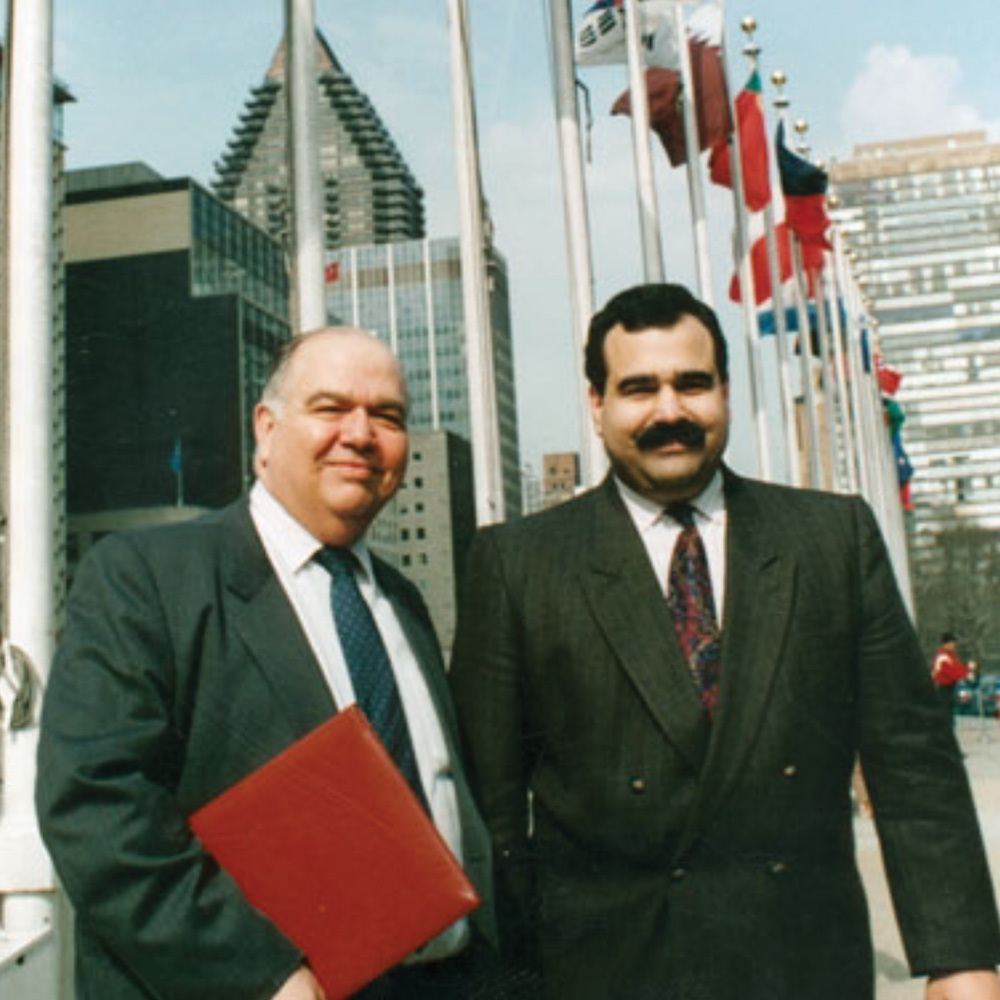
Raffi Hovannisian
First RA Foreign Minister and Politician
Fresno, CA native Raffi Hovannisian, son of the acclaimed Armenian-American historian Richard Hovannisian, made history of his own in 1991 as newly independent Armenia’s first minister of foreign affairs. After his service in government, Hovannisian put down roots in Armenia, where he founded and led the national liberal Heritage party and ultimately ran for president of Armenia. Hovannisian also founded the Armenian Center for National and International Studies, the country’s first independent research center.
“Offered a front-row seat, I stood myself in the back row of the historic hall of Soviet Armenia’s last legislature which on August 23, 1990, adopted the Declaration on Independence, officially launching the nation’s quest for restoration of its long-lost sovereignty. Deeply and proudly, I was reminded full circle of pioneer chronicler Richard Hovannisian’s voluminous life’s work on the First Armenian Republic, which began with Armenia on the Road to Independence.
On September 21, 1991, I was with U.S. Congressman Wayne Owens and other foreign dignitaries as we visited voting precincts in and around Yerevan. Actually there was no real need for such modern-day monitoring, as it was one day-long, republic-wide celebratory street festival, with toasts and songs to the anticipated landslide victory in favor of secession from the Union. God had granted us—and perhaps in some measure we might have earned–this special second chance at state sovereignty in the same century. There would not be a third.
Yet to be recognized by the world beyond, we were confident and optimistic, in Secretary of State Dean Acheson’s words, “Present at the Creation.” But did we have it in us to avoid the fate of the First Republic, to draw lessons from the past and build on its strengths, to face and overcome our collective flaws, all in pursuit of the national interest? And what would independence mean for Homeland, Diaspora, and the center of gravity? Whose Republic would she become?”
God had granted us—and perhaps in some measure we might have earned–this special second chance at state sovereignty in the same century. There would not be a third.
UNITED STATES
Ani Manoukian
Attorney and AGBU Board Member
Born in the United States to parents who emigrated from Lebanon during its civil war of the 1980s-1990s, Ani Manoukian (née Setrakian) was still in middle school but old enough to understand that something truly historic was taking place in the Armenian World. Years later, the graduate of Tufts University and Fordham University Law School would become a member of the AGBU Central Board. In that role, she engages with the Armenian homeland regularly, overseeing an array of in-country AGBU programs and projects as well as initiatives like the AGBU EmpowerHer Program in support of gender equality for women in Armenia.
“I was just a young teen in 1991 with a wide circle of Armenian friends and a large clan of relatives who nurtured and reinforced my Armenian identity on a daily basis. Yet, truth be told, with the declaration of Armenia’s independence (which landed on my birthday no less) I was actually more focused on what the moment meant in the non-Armenian context, that is my status at school, in my neighborhood, and the world beyond it.
Finally, when asked where Armenians came from, I could actually point to a place on the map. Just like that, it transformed and validated my sense of identity. No more justifications or explanations to prove what often sounded dubious or ambiguous to others. Armenia was recognized so I felt recognized.”
Finally, when asked where Armenians came from, I could actually point to a place on the map. Just like that, it transformed and validated my sense of identity.

Edele Hovnanian
Real Estate Developer
When Armenia declared independence, Edele Hovnanian was a University of Pennsylvania graduate and former investment banker who had joined the New Jersey-based family business founded by her father, the homebuilding industrialist and Armenian philanthropist Hrair Hovnanian. She had already studied in Soviet Armenia in 1981 and had involved herself in some Diasporan organizations, most notably, the Land and Culture Organization (LCO). Intrigued with its mission to restore and refurbish Armenian historic and archeological sites around the world, Hovnanian took the lead to connect the organizers in France with the homeland. Though these efforts expanded and succeeded for over a decade, Hovnanian was otherwise focused on running the Hovnanian family of companies. That would change in September 1991.
“On the day Armenia declared independence, my father entered my office with tears welling up, saying, ‘I wish my father were here to see this day. You and I cannot let him down.’ Little did we know then how much a free and independent Armenia would impact our lives. I recall, in those first few years of independence, how we Diasporans visited the country as welcome relatives. The residents there had so much hope that we would be the solution to the myriad challenges facing them. There was so much change to be managed. How the people of Armenia survived those early days of rebirth speaks to their resilience—no jobs, almost no electricity or heat, and whatever money saved now worthless.
Five years later, I came to realize that we may have overstayed our welcome, as the people were no longer dependent on our advice. So I decided to bridge this vast crevasse that was now dividing the western Diaspora and Armenia. I founded a nonprofit called Birthright Armenia. The strategy is to bring young adults to live in Armenia for long term stays, living with local host families and experiencing the country as an insider, not as a tourist. Since then, over 3000 young Diasporans have taken the journey of a lifetime to discover or reinforce their Armenian roots and plant a stake in the land and in the people they have grown to cherish.
Because I remember so vividly what Soviet Armenia was like, for me today’s Armenia has come a very long way. But it is nowhere near its full potential. My hope is that, when we reflect back on the 50th Anniversary of Armenia’s independence, we will see a nation as we dream it can be. One of the last things my father told me, before he passed away in 2021, was this: “Do not be the generation to see the birth and death of a nation in your own lifetime.”
One of the last things my father told me, before he passed away in 2021, was this: “Do not be the generation to see the birth and death of a nation in your own lifetime.
EUROPE
Yannick Kalantarian
Business and Community Leader
When Armenia declared independence, Yannick Kalantarian, a young businessman from Belgium, took part in the founding of the Belgian-Armenian Chamber of Commerce. Over the years, he has leveraged his extended network in the entertainment industry to initiate and lead numerous projects in support of Armenia and continues to maintain particularly close ties with the Aznavour Foundation, located in Armenia. From a family originally from Tbilisi, Yannick also maintains ties with the Republic of Georgia and was appointed Honorary Consul of Georgia in Belgium in 2020.
“As I recall, I welcomed the news of Armenia’s independence as a joyful and liberating event. However, I also knew that the transition from Soviet rule to a Western type democracy would be a long process. Thirty years as a sovereign nation is still quite young and even though Armenia is currently facing many challenges, I believe in its young generation, which is so bright and full of energy. I think our biggest asset as Armenians is to be supportive and united with the homeland.”
SOUTH AMERICA
Dr. Bedros Danielian
Physician and Community Leader
A native of Uruguay, Dr. Bedros Danielian has been a lifelong community leader of the AGBU local chapter and former director of the Tekeyan’s Cultural Association radio program. Now in his 70’s, he recounts the flood of thoughts and feelings that rushed through him on those days of celebration, after his work colleague broke the news of Armenia’s independence to him.
“Thirty years ago, I was the General Director practicing medicine at the Police Hospital when I heard that Armenia made good on its intention to declare independence. As the son of a Genocide survivor, my first thought was of my father, who had died 11 years before this historic moment. I was a community leader since age 15, so it came as really great news. Having an independent land whose affairs would be ruled by Armenians, for Armenians, was a once-in-a-lifetime event. My first desire was to celebrate with my family, and, moreover, with those Armenians of Montevideo who tuned in every day to hear my radio show. The special news of independence was perhaps one of the most important moments in the history of our broadcasts. There were many questions about the future, about the country and its rulers, but there was one certainty: Armenia was an independent republic, and we from the Diaspora knew the future would be brilliant if we worked together to develop it into a modern nation ready for the challenges of the 21st century.
After thirty years of independence we know that Republic of Armenia continues to face the overwhelming challenges, we know that we need to develop new strategies towards the international political environment. And I still believe in our collective Armenian power to achieve peace and prosperity.”
My first desire was to celebrate with my family, and, moreover, with those Armenians of Montevideo who tuned in every day at noon to hear my radio show. The special news of independence was perhaps one of the most important moments in the history of our broadcasts.
Ruben Kechichian
Businessman and Community Leader
Ruben Kechichian of Argentina is the son of Genocide survivors who believed that integration with the Soviet Union was the best protection for the Armenian people after the short-lived First Armenian Republic, guarding its borders and allowing it to preserve its ethnic traditions and culture. It meant a long period of domestic peace after all the tragedies the Armenian people experienced in the previous decade. Today, Kechichian is the honorary chair of AGBU Buenos Aires.
“At the time, I was the chapter chair, so I had the privilege of receiving the good news of Armenia’s declaration of Independence through a telephone communication with our Yerevan offices, in the presence of other local community leaders and chapter members.
Undoubtedly, independence was, for me, as unexpected as it was auspicious. It was the beginning of a cycle of openness to the outside world as an independent state, but submerged in the unknowns of an unplanned decision, as a result of the implosion of the U.S.S.R.
Of course, there was euphoria all around: the Buenos Aires Armenian community with its political, religious, cultural, educational and social institutions vibrated with hope. Already fired up by the cause of Artsakh, our young people were excited by this new reality, this rebirth.
Today, this memory remains indelible as well as the conundrums caused by the circumstances that emerged from independence.”
Of course, there was euphoria all around: the Buenos Aires Armenian community with its political, religious, cultural, educational and social institutions vibrated with hope. Already fired up by the cause of Artsakh, our young people were excited by this new reality, this rebirth.
MIDDLE EAST
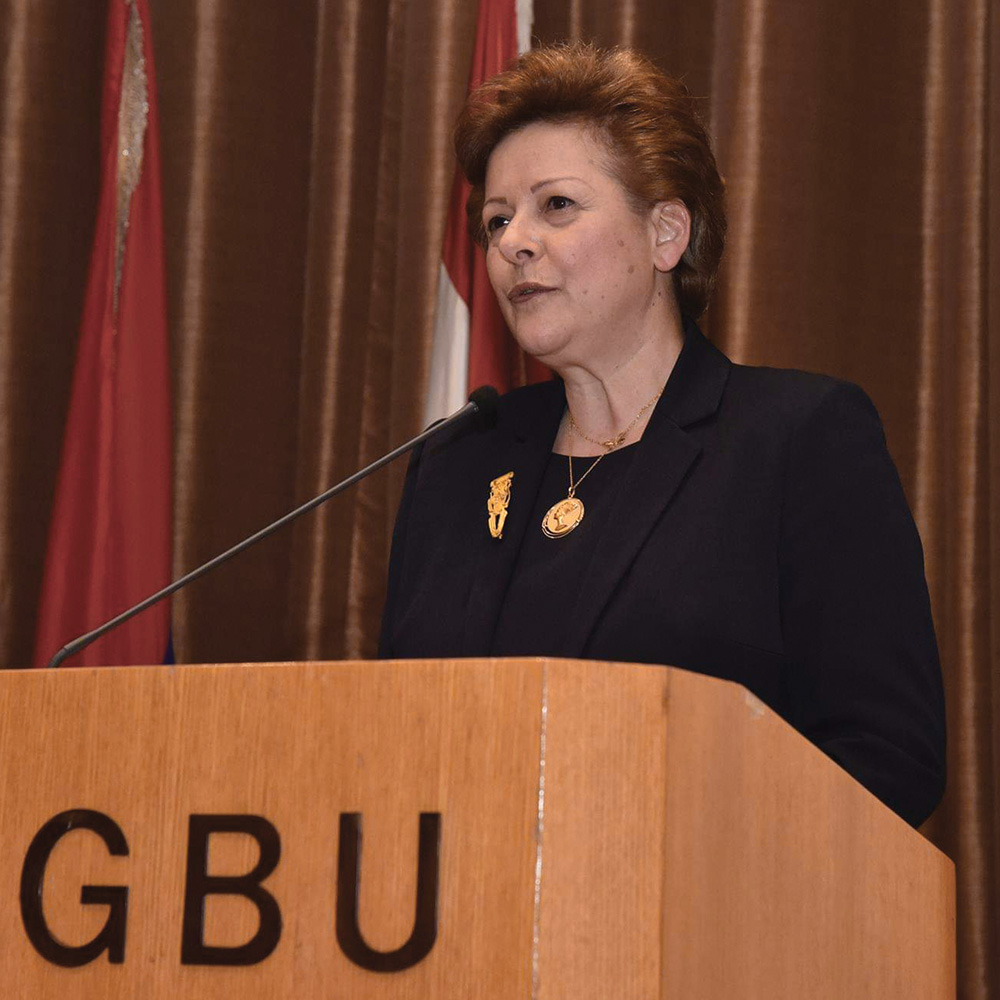
Mireille Khanamirian
Armenian Cultural Leader
As a dedicated member of AGBU’s District Committee and a cultural event planner, Mireille Khanamirian’s Armenian pride was deeply instilled in her by her family, despite her Lebanese education. Since 1993, she has nurtured a close relationship with the Armenian Embassy in Lebanon, first as a cultural advisor, then a policy officer on La Francophonie and later a representative of the embassy to the Lebanese Ministry of Culture in the framework of La Francophonie. Educa-tional projects, international media agreements, and other initiatives under the patronage of the Embassy of Armenia in Lebanon were also part of the mix. She looks forward to making her 50th trip to Armenia in the near future.
“I recall how the rebirth of independent Armenia ignited in me an unconditional passion toward this small country in the Caucasus called Hayastan. I remember thinking that, like a crystal glass that would shatter should we fail to protect it, we now hold in our hands the independence that our ancestors only dreamed of. We would be wise then to preserve it so that we may drink from it to satiety.
For me, independence means forging a path for oneself across the continents by arming oneself with one’s greatest asset: Armenian culture. It means giving newborn Armenia as many vitamins as possible so that it may reach maturity, without impediments. Our historical past, which made its mark on the sands of time, is a crucial argument in favor of our independence. The glorious past of the Armenian people must be an example to follow for generations to come, both in the Diaspora and in Armenia. I implore every Armenian to contribute within the limits of their possibilities to the recovery of our beautiful country so that our origins are not lost to future generations.”

